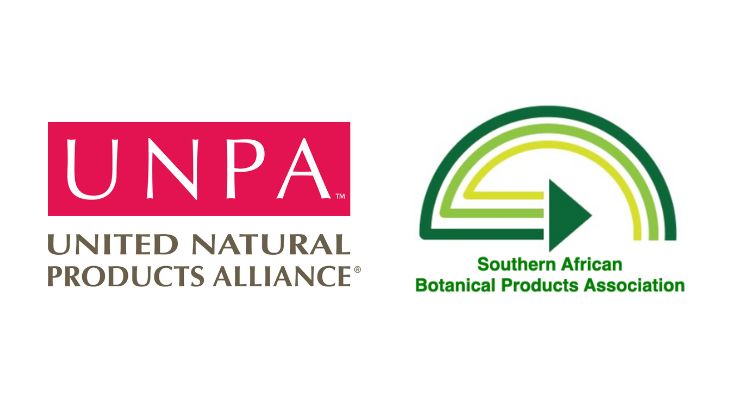03.07.24
The United Natural Products Alliance (UNPA) and Southern African Botanical Products Association (SABPA) have signed a memorandum of understanding (MOU) to advance knowledge of Southern African botanicals throughout the U.S. dietary supplement industry, with an emphasis on trade issues, research, safety, and quality.
Currently, SABPA is comprised of 17 members of Africa’s botanical products industry. The goal of the organization is to create a more connected, compliant, and rich supplement industry for a region that has been held back by regulatory challenges that have hindered market access during the past two decades.
UNPA hopes to leverage SABPA’s knowledge of this region and serve as a bridge to the US dietary supplement marketplace.
“SABPA hopes to raise awareness and develop markets for products in local and international markets,” said Thomas Brendler, SABPA’s head of regulatory affairs. “But for now, SABPA is focused on protecting its native and increasingly popular ingredient, Sceletium tortuosum, which has received intense interest from academia and industry for its role in depression and anxiety.”
While there are multiple ethical and high-quality Sceletium products on the market, SABPA noted that there was a lack of regulatory expertise, spurring the association to create a code of conduct and quality seal to ensure quality products and increase consumer confidence.
SABPA will work with local growers, traders, and brand owners to standardize analytical testing and provide assurance that they’re working with good quality raw materials and processed products.
SABPA plans to expand beyond Sceletium to other Southern African botanicals, like Aloe ferox, Lippia javanica, Pelargonium sidoides, and Myrothamnus flabellifolia.
“We are confident in working with SABPA that we can bring these quality botanicals to the US market responsibly,” said Loren Israelsen, founder and president of UNPA. “This is a largely untapped market that we want to make sure is shaped with safety, sustainability, and quality as the pillars of its success.”
“This is a mutually beneficial partnership that will expand SABPA’s resources, while at the same time giving UNPA’s members and the industry at large the knowledge it needs to explore the use of Southern African botanicals in a rewarding and ethical manner,” Brendler said.
Currently, SABPA is comprised of 17 members of Africa’s botanical products industry. The goal of the organization is to create a more connected, compliant, and rich supplement industry for a region that has been held back by regulatory challenges that have hindered market access during the past two decades.
UNPA hopes to leverage SABPA’s knowledge of this region and serve as a bridge to the US dietary supplement marketplace.
“SABPA hopes to raise awareness and develop markets for products in local and international markets,” said Thomas Brendler, SABPA’s head of regulatory affairs. “But for now, SABPA is focused on protecting its native and increasingly popular ingredient, Sceletium tortuosum, which has received intense interest from academia and industry for its role in depression and anxiety.”
While there are multiple ethical and high-quality Sceletium products on the market, SABPA noted that there was a lack of regulatory expertise, spurring the association to create a code of conduct and quality seal to ensure quality products and increase consumer confidence.
SABPA will work with local growers, traders, and brand owners to standardize analytical testing and provide assurance that they’re working with good quality raw materials and processed products.
SABPA plans to expand beyond Sceletium to other Southern African botanicals, like Aloe ferox, Lippia javanica, Pelargonium sidoides, and Myrothamnus flabellifolia.
“We are confident in working with SABPA that we can bring these quality botanicals to the US market responsibly,” said Loren Israelsen, founder and president of UNPA. “This is a largely untapped market that we want to make sure is shaped with safety, sustainability, and quality as the pillars of its success.”
“This is a mutually beneficial partnership that will expand SABPA’s resources, while at the same time giving UNPA’s members and the industry at large the knowledge it needs to explore the use of Southern African botanicals in a rewarding and ethical manner,” Brendler said.




























